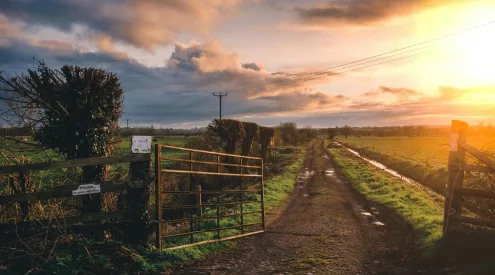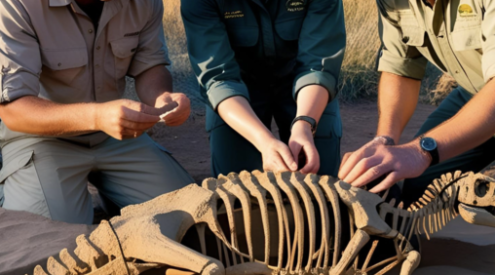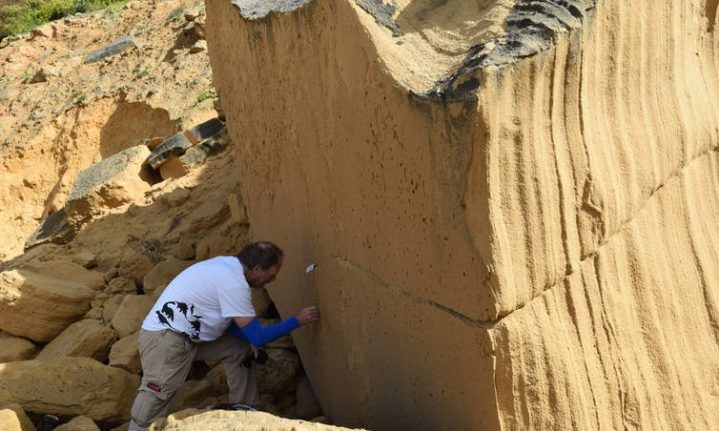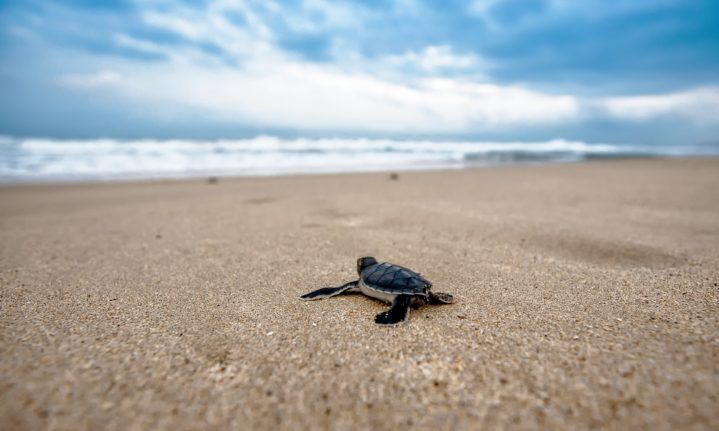As soon as they’re born, turtle hatchlings desperately dash to the sea with their tracks being quickly washed away by the tide. Now a multinational research team have discovered 100,000 year old baby sea turtle trackways on South Africa’s Cape South Coast.
According to The Conversation these tracks were first discovered in 2016. These findings have since been published including new scientific terms for the never before seen tracks, “Marineropdidae” meaning “seafarer foot traces”.
These seven ancient trackways have been preserved since the Pleistocene Epoch when our species, Homo sapiens, were emerging.
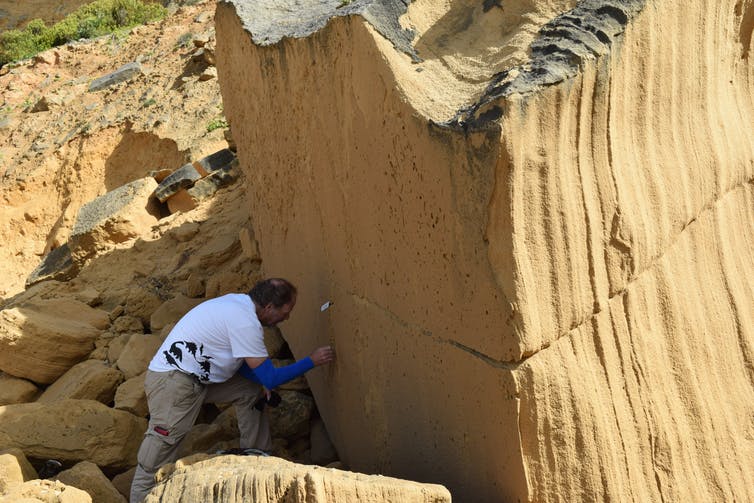
Author Martin Lockley working on the surface that contained seven sub-parallel hatchling loggerheard turtle trackways. Charles Helm
“Most likely, we suggest, wind blew fine dry sand over the beach surface where the tracks had recently been made in wet sand, preserving the tracks and later creating a separation layer. This allowed for their fortuitous discovery 100,000 years later,” researchers Charles Helm and Martin Lockley said
This new discovery helps researchers understand more about ancient climates and how turtle breeding ranges have changed over thousands of years.
Today, the descendants of these turtles make their nests over 1,000 km north-east, around the St Lucia coast and near the border with Mozambique.
“But they rarely come ashore along the Cape South Coast, and successful nesting appears exceptionally rare. We infer that the climate and sand temperatures were warmer when the tracks were made,” the researchers said.
These tracks contribute to an ecological census of the diverse fauna that inhabited the coast and are added alongside tracks already found including those of a human, lion, rhinoceros, elephant, giraffe, two species of buffalo, a giant horse, and various birds.
Image source: Pixabay



